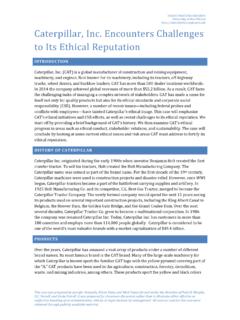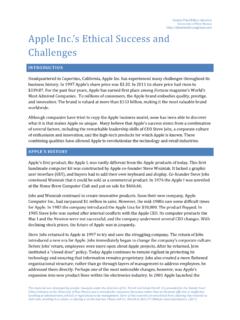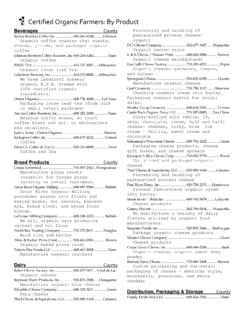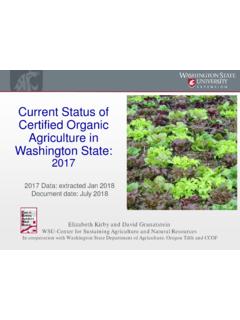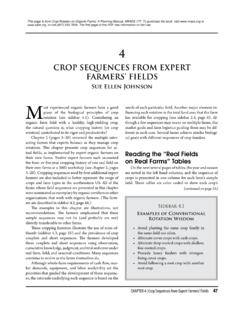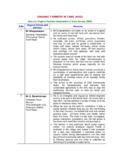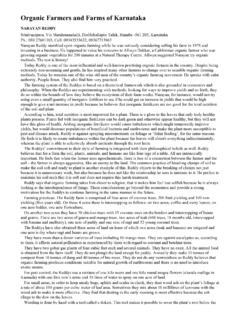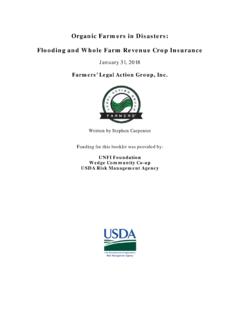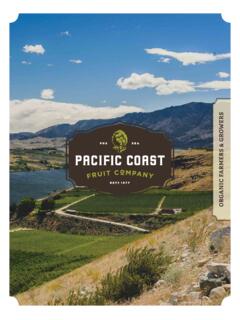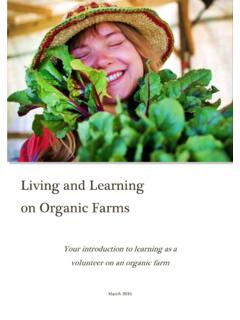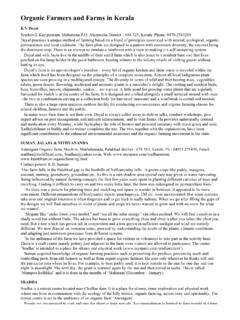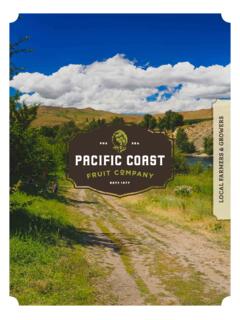Transcription of Debate Monsanto vs. Organic Farmers
1 Daniels Fund Ethics Initiative University of New Mexico Debate Monsanto vs. Organic Farmers Issue: Should Organic Farmers have legal protection against Monsanto for inadvertent contamination of their crops? Monsanto is a major producer of genetically-modified seeds. Genetic modification occurs when a company changes an organism s genetic code to give it new traits. For Monsanto this has translated into seeds that are resistant to its pesticide Roundup, which contains the chemical glysophate. This allows Farmers to use this pesticide to kill pests while leaving their crops intact. Because Monsanto has a patent on its genetically-modified products, Farmers cannot reuse Monsanto seeds for future crops but must purchase them from Monsanto each year. Monsanto will file lawsuits against Farmers who intentionally violate this agreement.
2 The organization has filed more than 140 lawsuits against Farmers and has settled with 700 Farmers out of court for patent violations. Farmers who have attempted to challenge this have not been successful. Many support Monsanto s right to have control over products that they have spent a significant amount of investment on. While there may be some agreement on Monsanto s right to sue Farmers who intentionally violate their intellectual property agreements, what about Organic or family-owned farms whose crops are inadvertently contaminated with genetically-modified seeds? A major concern among Organic Farmers is that seeds are often carried on the wind or by pollinators to other fields. This makes it possible for Monsanto s genetically-modified seeds to contaminate Organic crops.
3 The court of appeals has found that Monsanto cannot sue a farmer with a contaminated crop if the contamination constitutes less than one percent of the crop. Monsanto has also reiterated that it will not file lawsuits against Farmers whose crops are unintentionally contaminated with their seeds. However, the Organic Seed Growers and Trade Association as well as a number of Farmers filed a lawsuit against Monsanto in March 2011. They wanted greater protection against the company in particular, a promise that Monsanto would not sue Organic or family-owned farms that did not have licenses with Monsanto . The Farmers claimed that they are currently only protected if less than one percent of their crops are contaminated. They believe it is unfair for Monsanto to have the ability to file a lawsuit against them if contamination occurred that was unintentional.
4 Monsanto sought to have the lawsuit dismissed. The federal appeals court threw out the lawsuit, and the Supreme Court refused to hear it. They ruled that Monsanto s promises do not create conflict with Organic Farmers who might experience contamination. Supporters of Organic Farmers cite the fact that 90 percent of soybeans and 80 percent of corn crops in the nation are genetically-modified, so contamination of Organic crops is likely. They believe that it does not matter whether less than one percent of the crop is contaminated or not if contamination was unintentional, it should be treated as such. There is open skepticism of Monsanto s promise not to sue for inadvertent contamination. However, Monsanto says that a blanket promise stating it would not sue Farmers who did not have licensing agreements with the company would be detrimental to its profitability.
5 The organization believes allowing for such a guarantee could convince Farmers to take advantage of the system and find ways to intentionally violate their This material was Jennifer Sawayda under the direction of Ferrell and Linda Ferrell. It is provided for the Daniels Fund Ethics Initiative at the University of New Mexico and is intended for classroom discussion rather than to illustrate effective or ineffective handling of administrative, ethical, or legal decisions by management. Users of this material are prohibited from claiming this material as their own, emailing it to others, or placing it on the Internet. Please call Ferrell at 505-277-3468 for more information. (2014) 2 patents. For Monsanto , too much is at stake in developing a binding agreement that could impact its intellectual property.
6 There are two sides to every issue: 1. Monsanto s promise to Organic Farmers regarding unintentional crop contamination is sufficient to protect them against lawsuits. 2. Organic Farmers require additional legal protection to protect themselves from unjust lawsuits for unintentional crop contamination. Sources: Reuters, Monsanto critics denied high court hearing on seed patents, CNBC, January 13, 2014, (accessed January 15, 2014). Reuters, UPDATE 2 Top court refuses to hear appeal of Monsanto seed case, January 13, 2014, (accessed January 15, 2014). Greg Stohr, Organic Farmers Rejected by Top Court on Monsanto Patents, Bloomberg, January 13, 2014, (accessed January 15, 2014). Supreme Court hands Monsanto victory over Farmers on GMO seed patents, ability to sue, RT, January 13, 2014, (accessed January 15, 2014).
7
